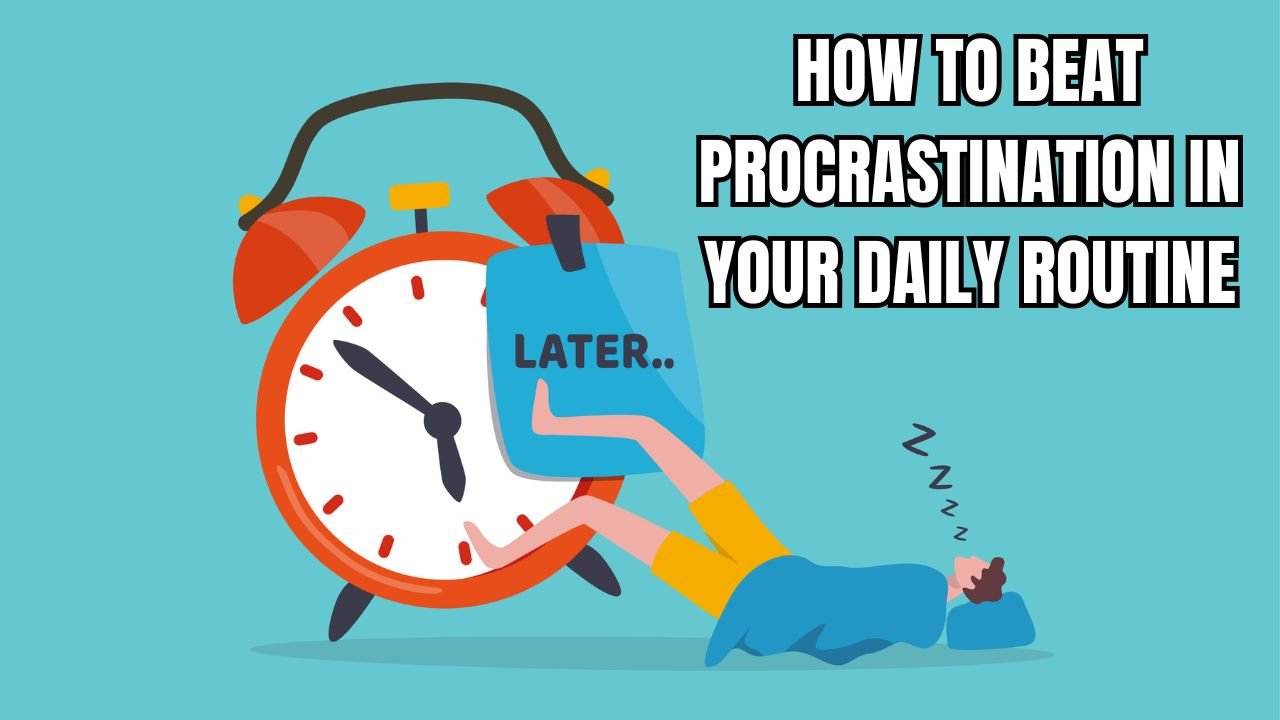Procrastination, that is, putting off an important task, is a tendency that knocks at the door of almost every person’s life at some point or the other. This habit may seem trivial, but when it becomes a habit, it affects every aspect of our life – be it our personal life, professional responsibilities or mental health.
Procrastination is not just the name of procrastinating, it is also a sign of fear, confusion, laziness and sometimes self-doubt within us. This article focuses on the nature of procrastination, its ill effects and ways to avoid it.
What is procrastination? — A clear definition
Procrastination is a habit in which a person deliberately postpones an important, time-sensitive or urgent task. Instead, he chooses a task that is easy, pleasurable, or gives immediate satisfaction — like scrolling on a mobile, watching TV, or repeatedly changing to-do lists.
This is normal if you do it once, but when it becomes a habit, it can harm both our efficiency and mental state.
Major effects of procrastination
1. Increase in stress and anxiety
When we postpone tasks till the last minute, the lack of time pushes us towards mental stress and restlessness. This anxiety deeply affects our mental and emotional health.
2. Decline in productivity
Procrastination wastes our time. We waste time in useless activities in the time in which the task could have been completed. This also affects the quality of our work and achievements.
3. Missing opportunities
Whether it is a career-related promotion or a good performance in an exam, procrastination deprives us of many opportunities. Many times these opportunities do not come again.
4. Decline in quality
When a task is tackled at the last minute, it is natural for its quality to decline. Lack of time affects creativity and precision.
5. Sourness in relationships
When we repeatedly delay, people who trust us get disappointed. This can cause a rift in mutual relationships.
6. Financial loss
Delay in submitting bills, paying taxes or planning money can lead to financial loss. Procrastination can cause financial instability in the long run.
7. Effect on physical health
Constant stress, lack of sleep, neglecting exercise and lack of self-care — all of these can lead to a habit of procrastination in the long run, which can also deteriorate our physical health.
Why do we procrastinate?
To understand procrastination, it is very important to know the reasons behind it. Some of the main reasons are:
1. Lack of motivation
If a task seems boring or pointless, then we do not feel like doing it and put it off.
2. Fear of failure
The thought that we might fail stops us from even starting.
3. Lack of time management
When we do not have a plan or we consider the task to be big and difficult, then we start shying away from doing it.
4. Desiring instant gratification
We’re often drawn to things that provide instant pleasure — like social media or video games — while leaving real work behind.
5. Perfectionism
Some people don’t start a task until they’re sure it will be perfect. This thinking leads them to procrastinate constantly.
How to get rid of procrastination?
There’s no magic solution to getting rid of procrastination. It’s an ongoing process that requires effort and introspection. But a few practical tips can help you:
1. Break the task into smaller parts
A big task seems scary, but if it’s broken down into smaller steps, it’s easier to do.
2. Set clear goals
Set a definite, realistic goal for each task. This clarity gives direction to your actions.
3. Prioritize
It is important to understand which task to do first. Start with the most important one.
4. Create a deadline for yourself
If there is no external deadline, then set a timeline for yourself and follow it.
5. Set accountability
Connect with someone who can monitor your progress and keep you motivated.
6. Reduce distractions
Organize your workspace and control mobile or other distractions.
7. Reward
Every time you complete a task on time, give yourself a small treat — like a favorite food, a break, or a reward.
Conclusion: Start afresh today
Procrastination is a human habit, but if it takes over our lives, it can become the biggest obstacle to our growth. Recognizing this tendency, understanding its causes, and gradually changing behavior is the permanent solution.
Start making small improvements in your routine today. Remember, every day is an opportunity to take yourself in a better direction. By defeating procrastination, you will not only become more productive, but also feel mentally calm and self-satisfied.
Special Notice: Towards Excellence in Education
**Mangalayatan Vishwavidyalaya, established in 2006The university is known for its excellent programs and innovations in the field of education. It is recognized by UGC, approved by AICTE and awarded A+ grade by NAAC. Awarded ‘Excellence in Teaching and Learning’ by ASSOCHAM, it is among the top 100 universities in India.
The degree offered here, like the Master of Commerce, is available in both online and regular mode, providing students with a wide range of career opportunities.
If you are also struggling with the habit of procrastination, then this is the time to change yourself. Your small initiative today can turn tomorrow into an empowered and balanced future.
